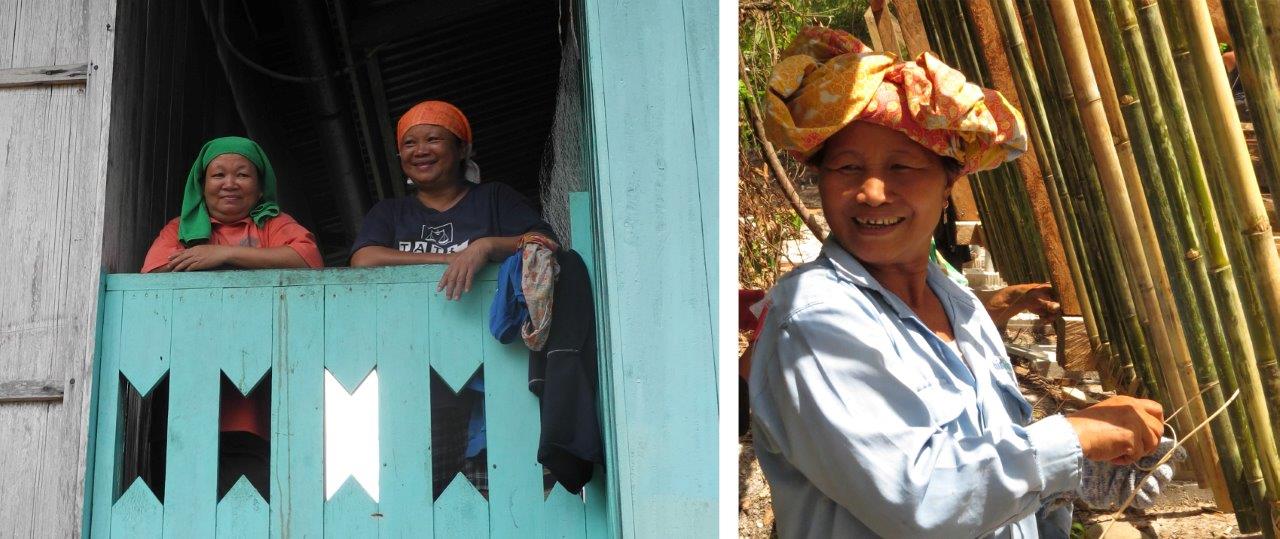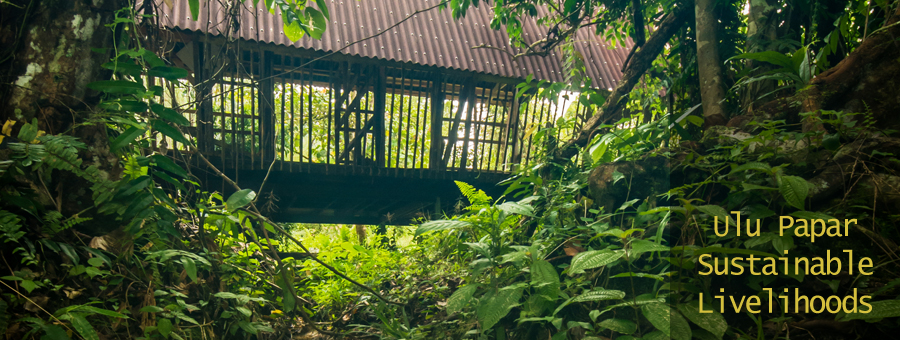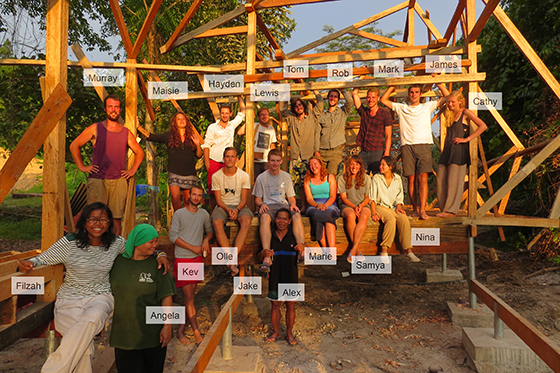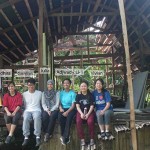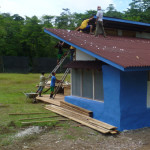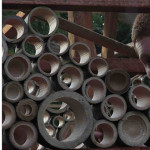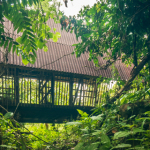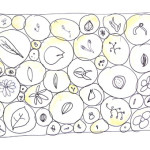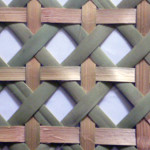Ulu Papar Sustainable Livelihoods Programme
Cover photo by Chai Ming Yang
Download this Sustainable Livelihoods Concept Paper
Ulu Papar is a community of several villages not far from Kota Kinabalu, the State Capital of Sabah. In one of the villages, Kampung Buayan, Arkitrek have been building the Ulu Papar Bio-cultural Heritage Centre. Ulu Papar was until recently only accessible by foot and this isolation has preserved a traditional culture based on shifting rice cultivation. As the influence of urbanisation and industrial agriculture begin to penetrate the region, the question is: how will the locals adapt their livelihoods in a way that upholds their identity and culture?
Community Research What (what we’ve achieved so far)
A Global Diversity Foundation (GDF) programme of participatory research and interactive training has allowed the Ulu Papar community to document and evaluate their indigenous knowlege and cultural heritage. This self awareness and the skills learned are intended to support sustainable livelihoods based on traditional knowledge. Now, at the conclusion of this programme, there is a need to switch from direct training to indirect support and partnerships that will allow the community to develop these livelihoods under their own initiative.
Bio-cultural Heritage Centre (Kick-starting Sustainable Livelihoods)
The first stage in the Sustainable Livelihoods process has been kick-started by the design and construction of a Bio-cultural Heritage Centre, which was designed, project managed and funded by Arkitrek, with additional funding raised by GDF.
Of MYR60,000 spent on construction to date, approximately MYR28,000 went directly to community members for transport and construction services, with an additional MYR17,000 in direct income from homestay services provided for international volunteers working on the project. During the construction process Arkitrek trained community members to adapt their traditional skills and materials to contemporary building design. These skills provide opportunity for sustainable future livelihoods.
To date, Arkitrek has also contributed pro-bono design and construction management services to the value of MYR40,000 to the Bio-Cultural Centre project.
How Can Arkitrek Continue to Help?
First, we need to raise funds to complete the Bio-cultural Centre and recruit volunteers to work alongside local craftsmen to get the job done. Remember that this is not just a building, but also a training programme in sustainable building techniques and a source of income for local craftsmen and homestays.
Secondly, we can provide additional pro-bono design services through our Arkitrek Camp design/build programme. These programmes help to train the next generation of socially responsible designers. We are looking for funds so that we can provide scholarships to outstanding Malaysian students.
Thirdly, we have developed a masterclass programme for Ulu Papar craftsmen to pass on their traditional skills and contemporary green-building expertise to eco-warriors, do-it-youself enthusiasts, scholars and designers.
All of these activities provide an opportunity to trek through the beautiful Crocker Range National Park and to experience the natural wonders of Ulu Papar, guided by the people who know it best: the locals.
Legacy (Savvy locals proud of their heritage)
The hard skills and knowledge gained from GDF and Arkitrek programmes have equipped the Ulu Papar community to deliver a range of goods and services, whose focus on natural and cultural heritage is increasingly in demand by urban society.
To get involved in our Sustainable Livelihoods Programme for Ulu Papar, please contact us.
Download this Sustainable Livelihoods Concept Paper
